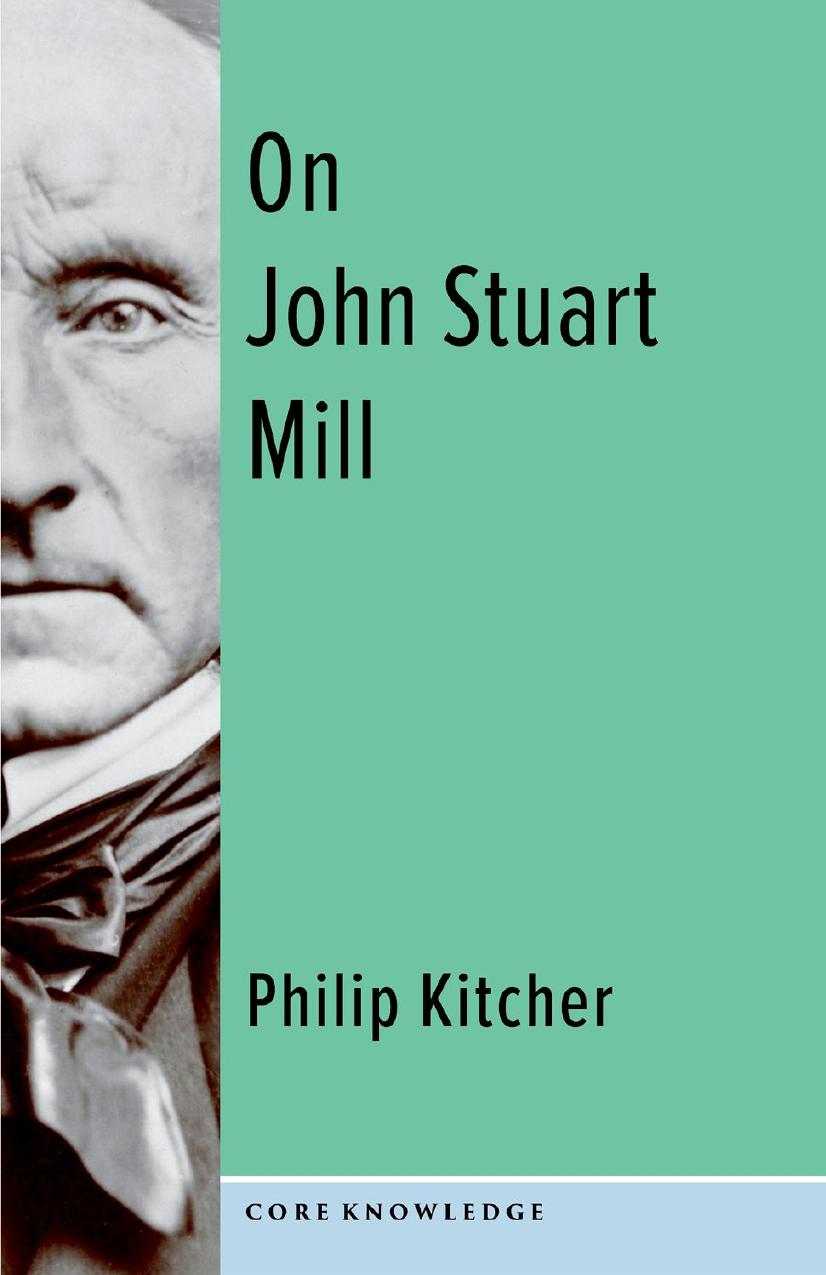On John Stuart Mill by Philip Kitcher

Author:Philip Kitcher
Language: eng
Format: epub, pdf
Publisher: Columbia University Press
With respect both to individual citizens and to nations, Mill takes progress to come through an education that develops capacities more fully than has been achieved in the past. In the case of nations, he forgets his most fundamental commitments in the interest of defending colonialism. When he considers citizens, the sin is one of omission. He does not elaborate his insights to propose a cure for the ills of democracy (some of which, as we have seen, he recognizes clearly). The elements, however, are there. I shall try to bring them together, thereby constructing what progressive Mill ought to have said.
In discussing the role of expertise in a democracy, Mill advocates a division of labor. Administration, he tells us, requires a single leader, someone who has deep knowledge of the pertinent issues and who can issue consistent and unambiguous directives. Yet the voices of the people must be heard. Assemblies of citizens have a crucial role to play: âWhat can be done better by a body than by any individual is deliberation. When it is necessary, or important to secure consideration to many conflicting opinions, a deliberative body is indispensable.â
The growth of the polity is shaped by the interactions among citizens, by exchanges of ideas among representatives of the various perspectives among the electorate. One of the problems for Millâs version of democracy is that of harmonizing the various plans of life. Since even the most gregarious person is unlikely to know the aspirations of all those who will be potentially hampered by the pursuit of that personâs own life plan, conflicts are inevitable. To avoid âencroachingâ on one another, fellow citizens will have to modify their own projects, to reshape the ways they pursue their own good. Mill does not see this as something to be regretted. What is given up is compensated: âEven to himself there is a full equivalent in the better development of the social part of his nature, rendered possible by the restraint put upon the selfish part. To be held to rigid rules of justice for the sake of others, develops the feelings and capacities which have the good of others for their object.â
These sentences are often overlooked by readers who think of Millâs individuals as thoroughly isolated, composing in their protected spaces their plans of life, and only needing highly developed cognitive capacities to do so. (Interpretations of this style are easily understoodâmany passages in Millâs writings are compatible with them.) For those who recall the close of the St. Andrews address, with its exhortation to the students to leave their âfellow creatures some little better for the useâ they have made of their educations, what he says here should come as no surprise. Nor to anyone who reflects on Millâs life and on his discovery of the importance of interpersonal relations.
Our education continues beyond our schooldays, apparently, in the growth of fellow feeling, in the sacrifices weâwillingly!âmake as we find out how what we have aspired to would inhibit others, and in our revisions of our plans of life to resolve the conflicts.
Download
This site does not store any files on its server. We only index and link to content provided by other sites. Please contact the content providers to delete copyright contents if any and email us, we'll remove relevant links or contents immediately.
| Deconstruction | Existentialism |
| Humanism | Phenomenology |
| Pragmatism | Rationalism |
| Structuralism | Transcendentalism |
| Utilitarianism |
The remains of the day by Kazuo Ishiguro(7587)
Tools of Titans by Timothy Ferriss(6983)
The Black Swan by Nassim Nicholas Taleb(6220)
Inner Engineering: A Yogi's Guide to Joy by Sadhguru(5923)
Giovanni's Room by James Baldwin(5904)
The Way of Zen by Alan W. Watts(5815)
The Six Wives Of Henry VIII (WOMEN IN HISTORY) by Fraser Antonia(4807)
The Power of Now: A Guide to Spiritual Enlightenment by Eckhart Tolle(4781)
Astrophysics for People in a Hurry by Neil DeGrasse Tyson(4634)
Asking the Right Questions: A Guide to Critical Thinking by M. Neil Browne & Stuart M. Keeley(4609)
12 Rules for Life by Jordan B. Peterson(3761)
The Ethical Slut by Janet W. Hardy(3523)
Skin in the Game by Nassim Nicholas Taleb(3489)
Housekeeping by Marilynne Robinson(3427)
The Art of Happiness by The Dalai Lama(3400)
Double Down (Diary of a Wimpy Kid Book 11) by Jeff Kinney(3292)
Skin in the Game: Hidden Asymmetries in Daily Life by Nassim Nicholas Taleb(3280)
Walking by Henry David Thoreau(3242)
12 Rules for Life: An Antidote to Chaos by Jordan B. Peterson(3211)
